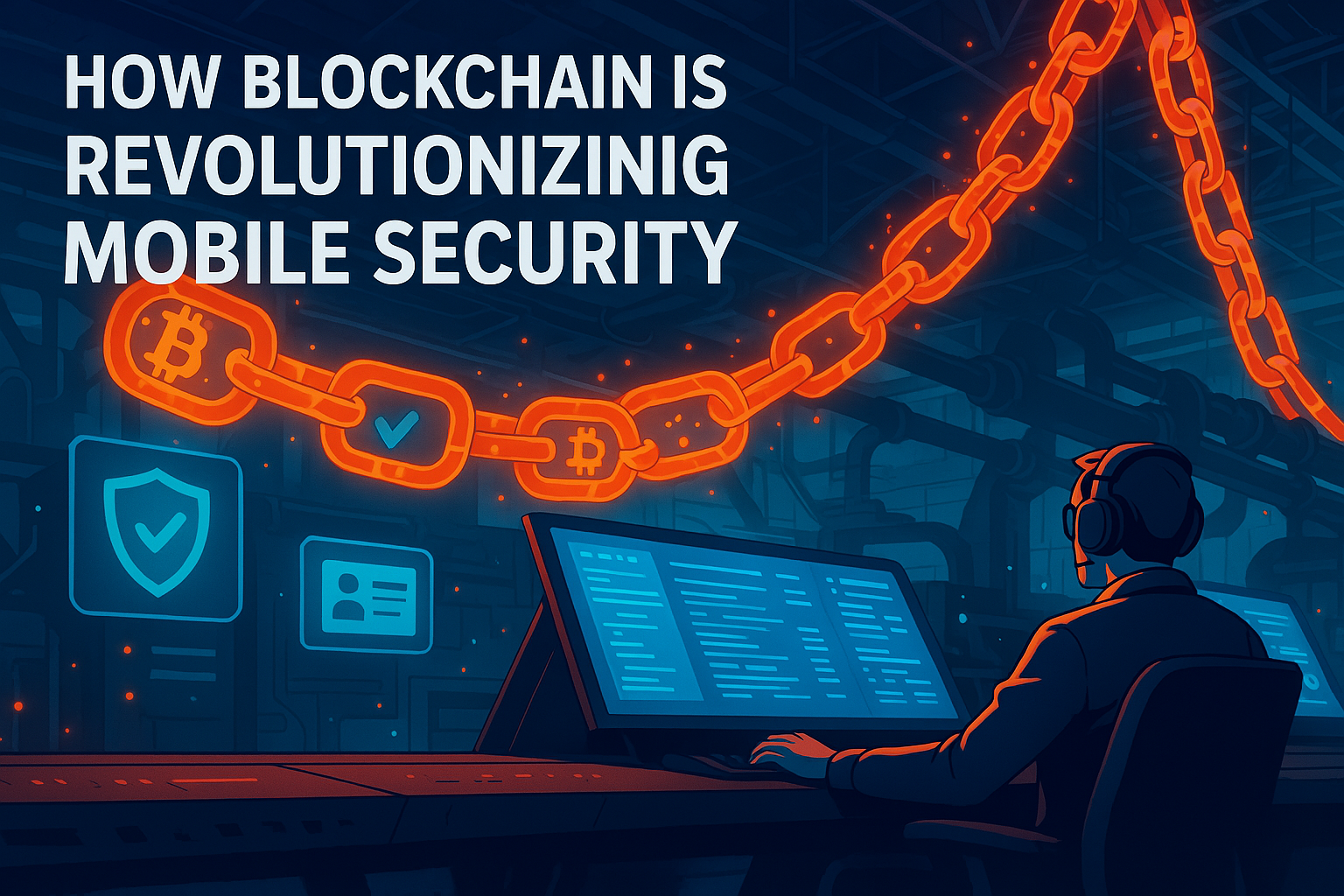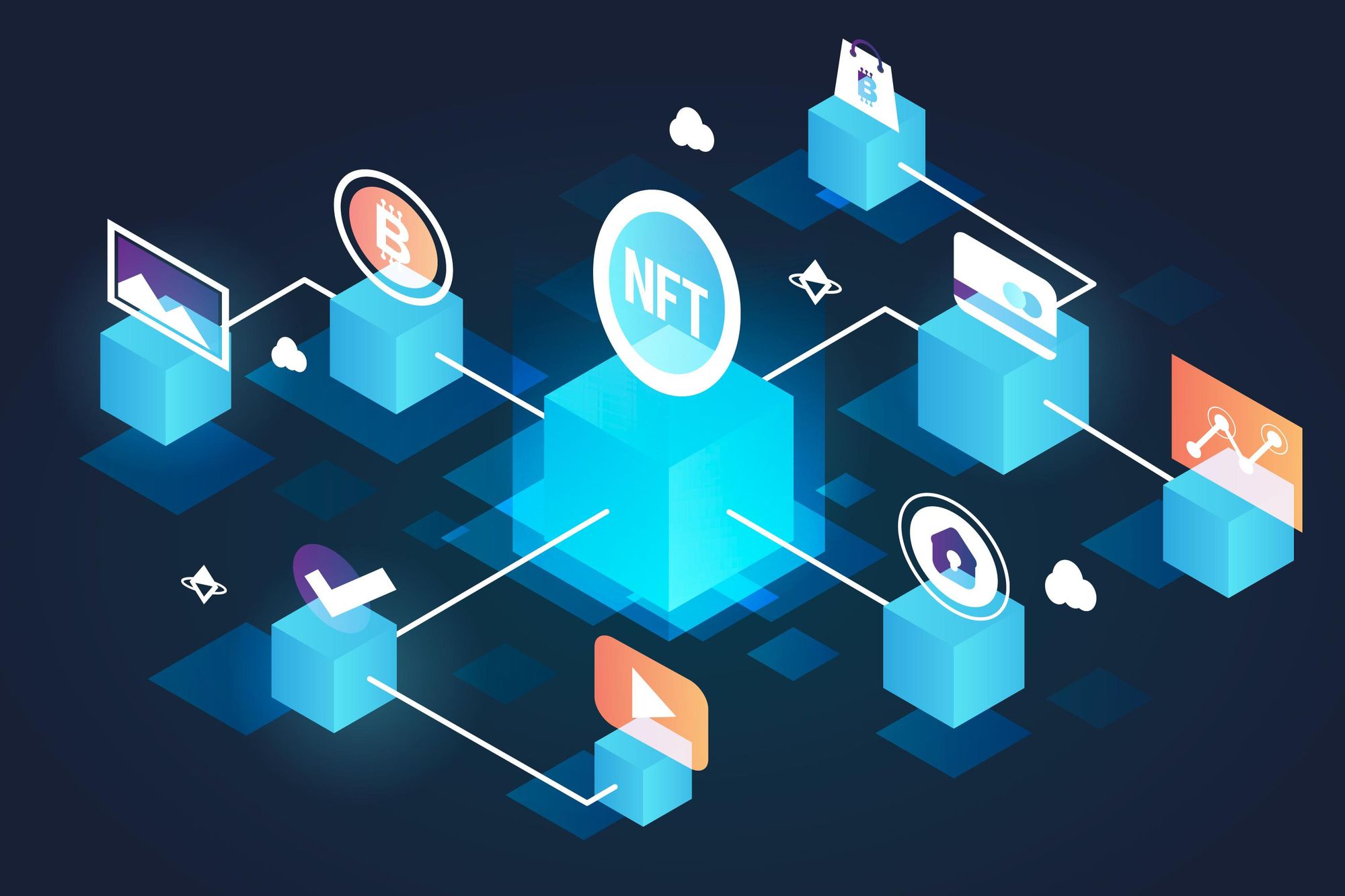How Blockchain is Revolutionizing Mobile Security

In today's digital landscape, mobile security has become a critical concern for individuals and organizations alike. With the increasing number of cyber threats targeting mobile devices, innovative solutions are needed to protect sensitive data and ensure secure transactions. Enter blockchain technology – a revolutionary approach that's transforming mobile security as we know it.
The Future of Mobile Protection is Decentralized
In an era where mobile devices are the gateway to our digital lives, securing them is more crucial than ever. Blockchain—a technology once synonymous with crypto—is now a powerful tool reshaping mobile security as we know it.
What is Blockchain?
Blockchain is a distributed ledger technology that records transactions across multiple computers in a way that ensures the data cannot be altered retroactively. Each "block" contains a cryptographic hash of the previous block, creating a chain of blocks that are inherently resistant to modification.

How Blockchain Enhances Mobile Security
1. Decentralized Authentication
Traditional mobile security relies on centralized authentication systems, which present a single point of failure. Blockchain introduces decentralized authentication mechanisms that distribute security across multiple nodes.
Traditional mobile apps = Centralized data.
Blockchain = Distributed trust.
- Centralized systems are honey pots for hackers. A single breach can expose millions of users. Blockchain, however, distributes data across a network of nodes—eliminating the single point of attack.
- Visual comparison of centralized vs decentralized mobile security networks.
- Exmaple:- Apps like Status and Session use decentralized communication to prevent surveillance and server-side attacks
2. Secure Data Storage
Blockchain provides a secure method for storing sensitive data by encrypting it and distributing it across multiple nodes.
- Data is cryptographically secured
- No single point of compromise
- Transparent audit trails
3. Self-Sovereign Identity (SSI): Own Your Digital ID
Tired of remembering 27 passwords?
Blockchain offers Self-Sovereign Identity, where you control your own credentials using cryptographic keys.
- SSI removes reliance on Facebook, Google, or email logins. Users prove who they are without oversharing data.
- Digital ID wallet with fingerprint or face recognition icons.
4. Securing IoT Devices via Mobile
Your phone is now your smart home controller, your fitness hub, even your car key.
- IoT devices are often vulnerable. Blockchain can register and authenticate each device, ensuring secure communication.
- Smartphone talking securely to smart bulbs, locks, and thermostats with blockchain nodes in between.
- Example :- Smart homes use blockchain to log access to smart locks, preventing spoofing or forced access.
5. Smart Contracts for Secure Mobile Protocols
Smart contracts are automated scripts that live on the blockchain. They can enforce mobile security rules, like:
✅ Device authentication
✅ Geo-fenced access
✅ Multi-factor verification
- Smart contracts ensure that security isn’t just promised—it’s programmed.
- Smartphone with a smart contract scroll locking or unlocking access.
- Example :- An enterprise mobile app could use smart contracts to allow document access only if biometrics + location are verified.
The Future of Blockchain in Mobile Security
As blockchain technology continues to mature, we can expect to see:
- More user-friendly blockchain-based security solutions
- Integration with other emerging technologies like AI and IoT
- Industry-specific blockchain security standards
- Greater adoption by major mobile device manufacturers
Conclusion
Blockchain technology is fundamentally changing how we approach mobile security. By leveraging its inherent properties of decentralization, immutability, and transparency, blockchain offers promising solutions to many of the security challenges facing mobile users today. As the technology continues to evolve, we can expect even more innovative applications that will further revolutionize mobile security.
The journey toward fully blockchain-secured mobile experiences is just beginning, but the potential for creating more secure, private, and user-controlled mobile environments is enormous.
